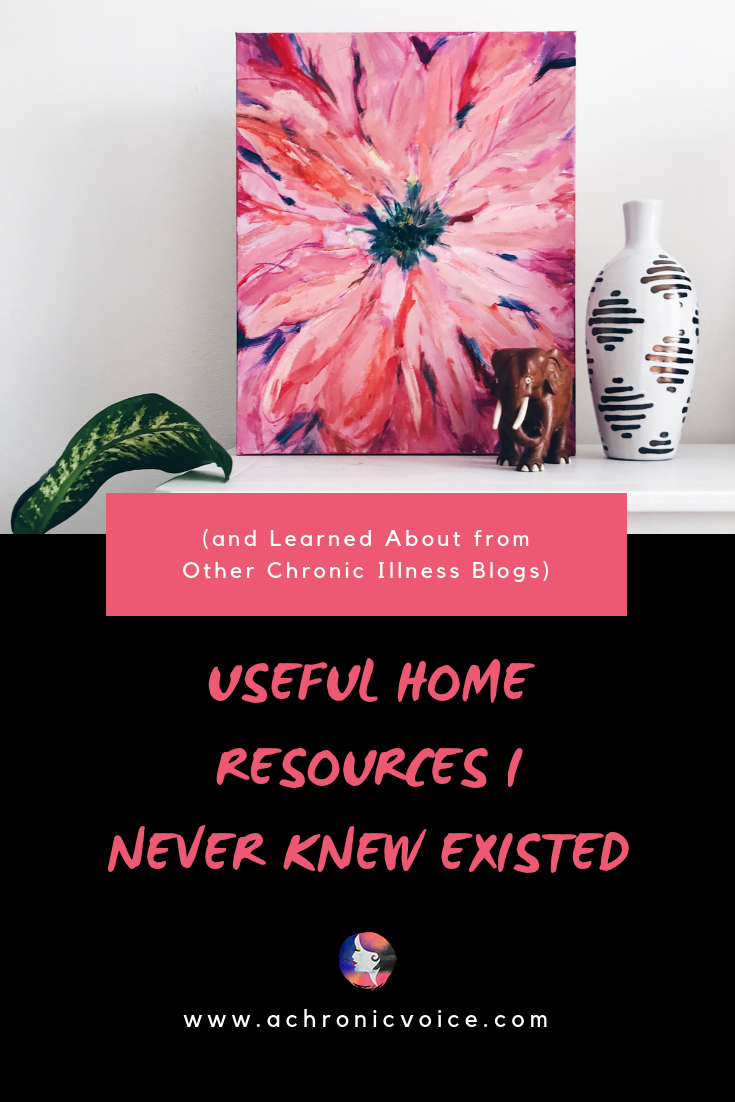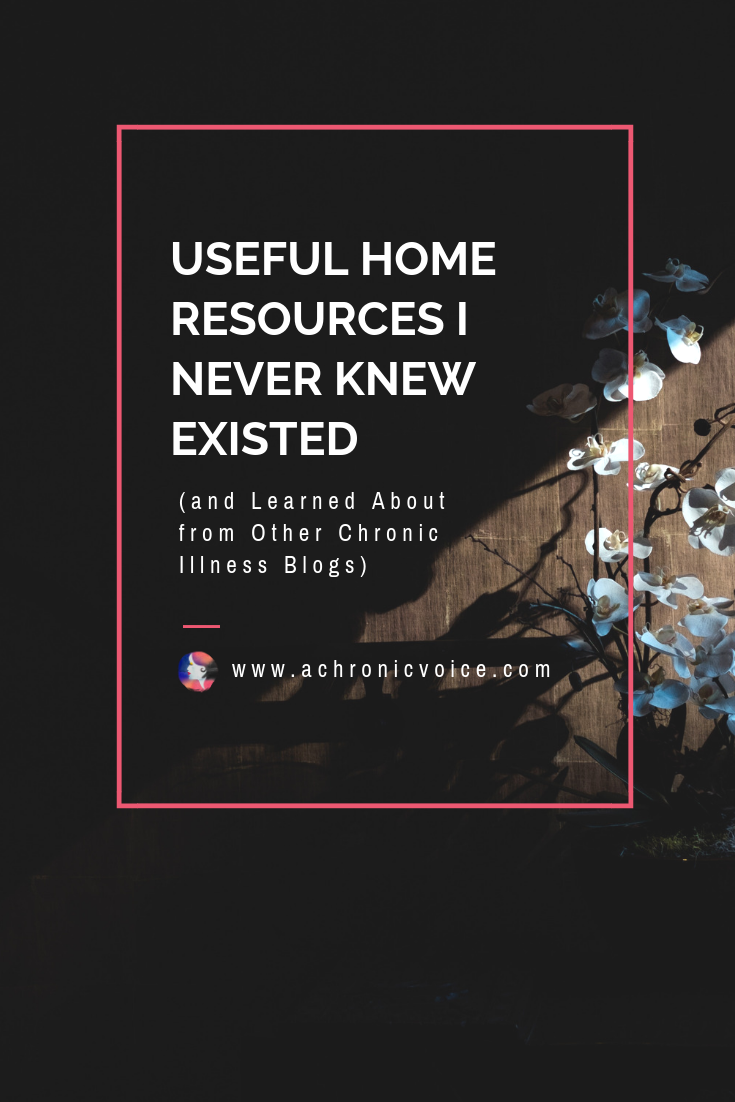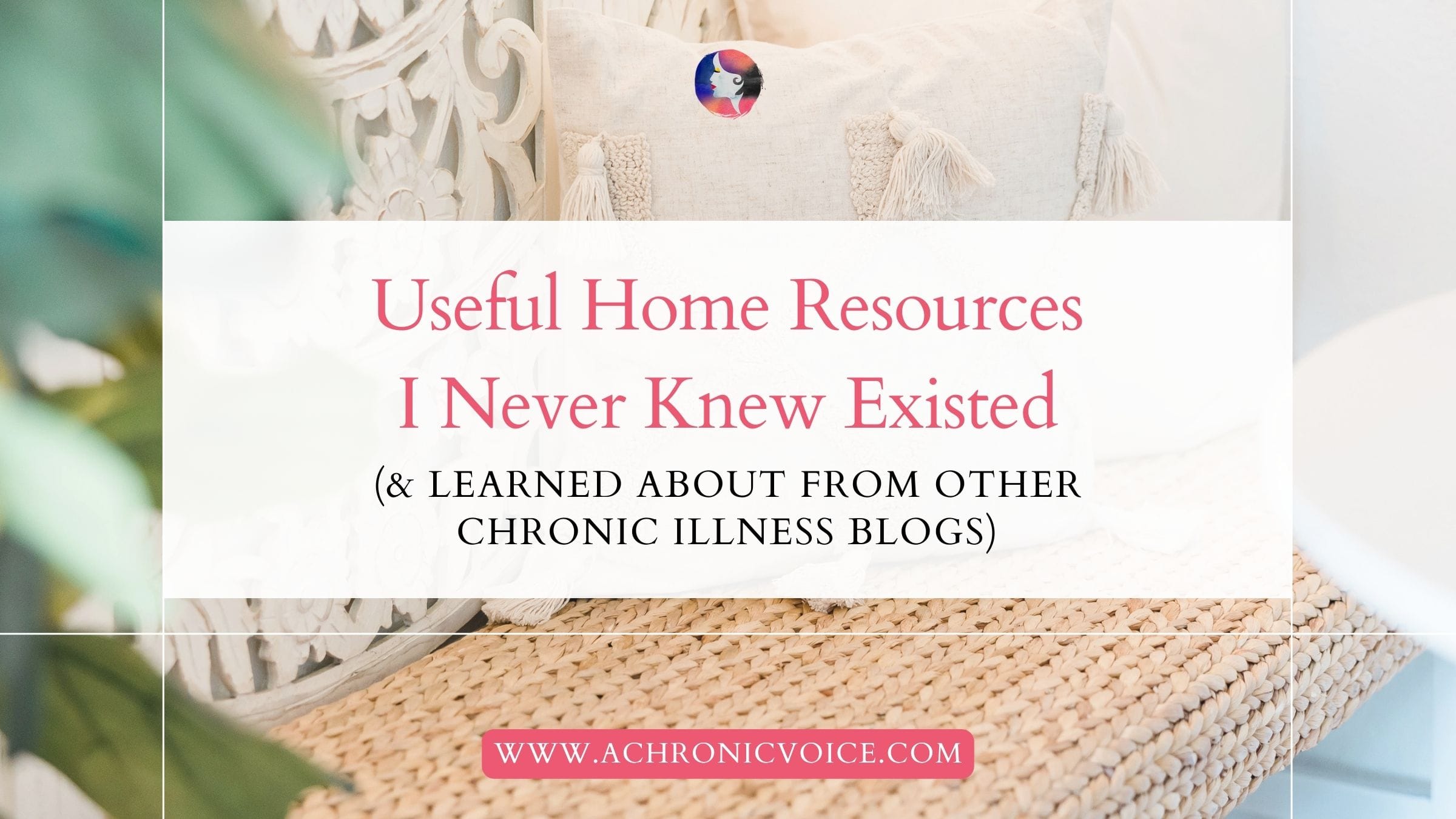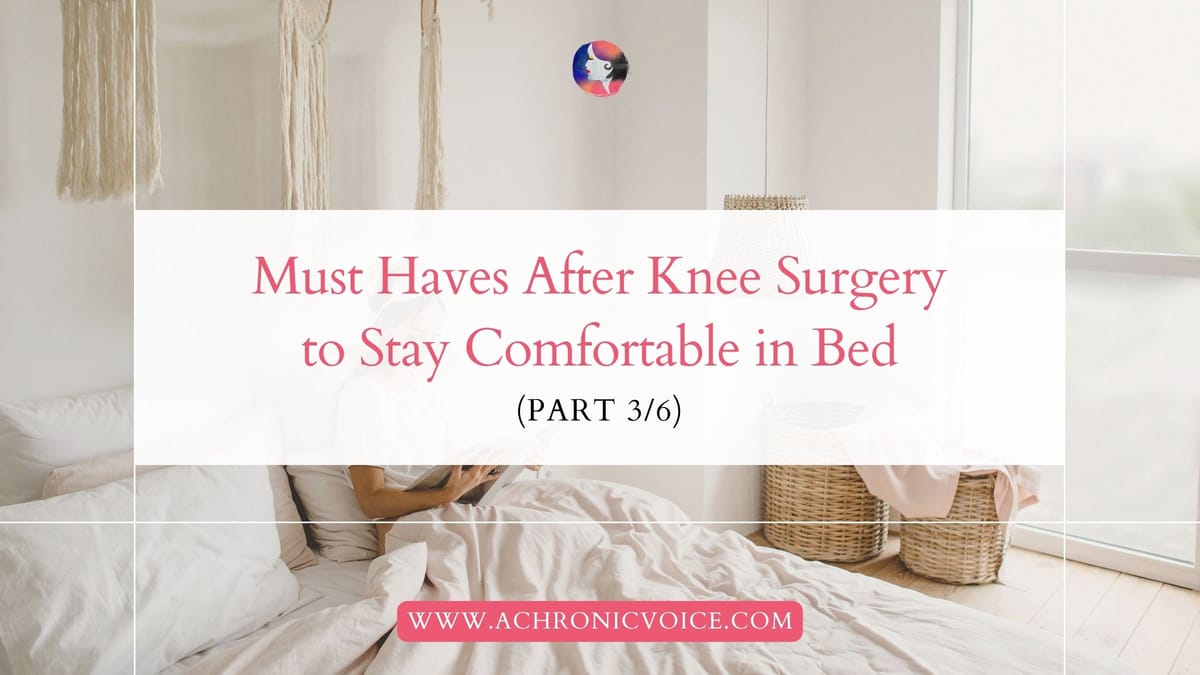*Disclaimer: Whilst this post on useful home resources is kindly sponsored by Handicare Stairlifts, all opinions expressed in it are my own. This article is meant for educational purposes, and is based on my personal experiences as a patient. I am not a doctor, and nothing in this article should be substituted for medical advice. Please consult your own doctor before changing or adding any new treatment protocols. This post may also contain affiliate links. It will cost you nothing to click on them. I will get a small referral fee from purchases you make, which helps with the maintenance of this blog. Read our Privacy Policy page for more information. Thank you!
The Extra Challenges of Living with Chronic Illness or Disability
As we know by now, living with a visible or invisible disability imposes many challenges in daily life. Simple movements are not that simple and add up quickly. Many of us keep an ‘energy cheque book’, often filled with cancellations, notations and bright yellow highlights. Our energy allowance is meted out on a daily basis, and it gets old fast when you need to watch it with hawk-like attentiveness.
I started my blog 3 years ago, and one of the surprising benefits is the amount of knowledge I’ve learned from other bloggers. Whilst I’m no medical whiz nor do I fully grasp the personal pains of every person, I have learned more about other rare diseases and how these individuals cope. This includes accessible home resources, novel treatments, medications and fresh perspectives.
I have decided to compile a list of these useful home resources, tools and hacks for everyday living here. After all, our houses are where many of us spend the most time in.
Pin to Your Useful Home Resources, Disability & Accessibility Boards:

1. Useful Home Resources for the Kitchen: Rocking Knife, Food Dehydrator & Grabber
Blythe of “Sustainable Spoonie” wrote one of my favourite posts on energy saving gadgets for the kitchen (unfortunately, it seems like she no longer blogs). Equipments such as pressure cookers and food processors might be well known tools, but I never knew about food dehydrators, which you can use to easily make your own healthy snacks for the bad days (or even good ones!).
Then there's the rocking knife, where you use both hands to cut food up with a rocking motion. This sounds like it'd take much of the pressure off the hands and wrists.
The grabber/reacher is a simple tool that you could treat as an extended arm. This reduces the need to bend down to pick things up, which can be agony for those with back or joint aches. The great thing about the grabber is that it can be used anywhere in your home, too!
2. Useful Home Resources for the Bathroom Bathroom: Shower Chair, Grab Bars & Toilet Seat Raiser
For some reason, I had never thought about purchasing a shower chair before. There’s a reason they have them installed in hospitals. Sitting down can save you a lot of energy, especially for those who find showering more fatiguing than refreshing.
Grab bars are a fantastic fixture not only for those who suffer from chronic pain or dizziness, but also for the elderly, and anyone with a fall risk. Whilst I don’t need these, I know how useful it is to have something solid to hold onto for support. I used to ask my partner to transform his arms into my personal handrails whenever I was aching horribly, so I could pull myself up with more ease. Do you do this, too? 😉
Update: Well, I suffered a spontaneous bilateral patellar tendon rupture and became disabled and bed bound for an entire year. So I can attest now that shower chairs and grab rails are a must have for bathroom accessibility. My shower chair is affixed to the wall and can be folded up to save space. In addition, a toilet seat raiser is also incredibly useful.
3. Useful Digital Home Resources: Voice Assistants, Alexa & Google Home
Working on a computer can be limiting and difficult for those with disabilities or chronic pain. Here’s where voice assistants can be amazing accessibility tools. You can dictate your emails, browse the internet, and even set the position of your mouse on-screen.
The main benefit of using your voice instead of your mouse or keyboard, is that it lifts ergonomical restrictions. You are now free to sit in the most comfortable position for you, and move your body more. This is a great tool for healthy people too, with sitting and sedentariness as big factors of disease in modern society.
This isn't limited to your desktop either. You can use voice assistants on your phones and other digital devices to make a phone call, send text or WhatsApp messages, and set reminders (for e.g., “Remind me to call Doctor X at 10a.m. tomorrow”).
I’ve also read many impressive things about how people use the Alexa to improve their lives at home. There is no limit to imagination, but here are 15 great ways to set it up for home use, compiled on Julie’s blog, "Counting My Spoons". From turning the lights on and off, to an intercom, to entertainment! It sure does sound like a handy little ‘companion’ and personal home assistant.
Or if you prefer using Google Home instead, this guide by "My Hope Whispers" is a good place to start. I like how she uses it to unlock the door for her kids when they come home from school. And how it 'remembers' things such as where she's placed her keys, or last took her medications.
4. Useful Home Resources for the Bedroom: Bed Tray, Kindle & More
A bed tray sounds like something useful for when you're bedbound. There is a variety of them out there, so hopefully you can find one to suit your needs. If you need to work from bed, there are trays that come with holders for your laptop, ipad and other devices. If storage is a concern, there are foldable ones. There are also those with closed compartments so you can keep your 'desk' organised, and even ones with lefties in mind!
I included the Kindle on this list as many of those who live with chronic pain also suffer from painsomnia. A Kindle with backlighting is great for nights when you’re up alone, and don't want to disturb your sleeping partner.
A good book can be a wonderful distraction and soothing companion, as they immerse you in a different world. Kindles are lightweight so they don't hurt your wrists, and sits in your palm quite nicely. In fact, I recently downloaded a bulky book I already owned to read on my Kindle instead. This increased the pleasure and speed of reading, as it took away the constant need to reposition myself or the book in order to read it properly.
5. Bibs & Bobs, and the Importance of Organisation
I know I sound like a grandma, but I love going to Daiso (the dollar store here - what’s it called in your country?). Everything is priced at $2, and the quality of items are actually pretty good!
Space is limited, so I and many people in Singapore live in small apartments. Here’s a list of household items that I’ve bought, love and still use: a wall clamp for brooms (so it’s elevated off the ground), lots of fluffy face towels (yes I like to feel the softness after a shower), many different sized boxes for various storage purposes (bird seeds, medical documents, condiments), pretty ceramic bowls to throw random items and jewellery into, etc.
Organising Your Daily Medications
If you take lots of medications every day, then you'd know the value of organisation. I use these stackable holders I bought from Daiso to separate my morning and night medications. This helps to reduce the mental load of differentiation each time I need to refill my pill boxes, which is a lifelong task. Ikea also sells these large compartment storage boxes that are great for keeping my wardrobe and yet more medications organised.
Apart from the comfort a nice and neat home brings, keeping things in their proper places is vital for those who suffer from brain fog. In cases of an emergency, caregivers or acquaintances can locate and retrieve important items for you quickly as well.
6. Useful Home Resources for Multi-Storied Homes: Baskets & a Stairlift
Whilst I’ve never lived in a house with multiple stories, I’ve learned some interesting hacks from others nonetheless! For example, Natalie of “The Spoonie Mummy” keeps a basket by the staircase at home, which she dumps items into that she wants taken up or down. This saves her from the need to make several trips, which can escalate the pain from her Rheumatoid Arthritis.
Another option, especially if climbing staircases are a huge daily problem for you or a family member, is to consider getting a stairlift fitted. The rails on which these chairs operate on come either straight or curved, and can be customised to fit your home. This is great if you're looking for a long-term solution. There are many companies that offer financing options or refurbished stairlifts as well.
In Conclusion to Useful Home Resources for the Chronically Ill & Disabled
These are just a few things or tools you can use to improve the quality of your life at home. Many of these useful home resources fascinated me when I first discovered them for myself. I hope that something on this list is of use to you. I'd also love to hear what your personal favourite home hacks and tools are as well in the comments section below!
Pin to Your Useful Home Resources, Disability & Accessibility Boards:







Comments Archives:
Comments imported from previous WordPress site.-
Claire
-
Sheryl Chan
-
Shruti
-
Sheryl Chan
-
Kirsten
-
Sheryl Chan
-
Jaime A. Heidel
-
Sheryl Chan
-
Mandy FArmer
-
Sheryl Chan
-
Despite Pain
-
Sheryl Chan
-
Georgina
-
Sheryl Chan
Start a new conversation in the Member Comments below!This is such a helpful list Sheryl! I don’t have too many adaptations around the house, as I am fortunate not to need them. But saying that, I sort-of adapt my personal care. So pills are organised for the week so brain fog doesn’t mean I take something twice, water by my side all the time and many other things.
Me too! I have like all my emergency meds by my bedside for when I’m in too much pain to even walk across the room to go pick them up haha. I do need to organise stuff even better!
This is such a good list… and I love my shower stool!
The best thing to have when getting exhausted during a shower and makes washing hair so much easier.
What’s strange is, many years back, I got hand rails done in the shower for any elderly family that may visit and I think I end up using it the most! And I’m so grateful I got it done. Saved me so much possible trouble.
Hi Shruti, thanks for checking this post out too! 😀 I don’t have so much trouble in the shower and love the alone time in there, but sometimes my fingers are quite arthritic so I have problems opening bottles or scrubbing my scalp haha. A shower stool and rails are definitely useful when you’re struggling in the shower!
I love this list! Thanks for sharing. I totally agree with you, since I joined the chronic illness community I learned so much more about the medical world and accessibility.
Thanks Kirsten, for taking the time to read and comment! Yes there’s so much other helpful, well researched information out there, and also personal experiences from actual people who live with all sorts of illnesses. What’s surprising too is that the knowledge from one thing can sometimes be applied to something totally different as well, so that’s pretty neat!
This is a really helpful list! Thank you for curating it.
Thanks Jaime, I’m really happy to know that it’s helpful!
This is a great list. I will share on my FB page.
My shower bars have been a lifesaver for me. Love the stair basket idea too!
Thanks for the feedback and for sharing, Mandy! Yes I’ve heard great stuff about the shower bars and chair. The stair basket is definitely a neat idea too. I think I might even ‘compartmentalise’ my apartment that way 😉
I love my shower seat. I honestly don’t know how I managed without one. Sometimes the hot water from a shower really helps, but standing didn’t. So to be able to just sit there, with the hot water helping is wonderful. I’d recommend it to anyone with pain and mobility problems.
Pound shops here in the UK. Amazing places, aren’t they? Can never have too many containers!!
Yes exactly, sounds like a good idea for some pain relief, comfort, keeping clean and independent in the shower!
Agreed, can never have too many containers ;D
Hi! This is a very informative post and filled with so many useful tips. I’ll definitely be trying some out!
I’ve been following your blog for a while and love it, so I’ve nominated you for the Disability Blogger Award that I created! You can find my post on Chronillicles.
Happy blogging! Georgina from Chronillicles ?
Hi Georgina, thanks for the nomination, I will take a look! 🙂 And am happy to hear that you found this post useful. Let me know if you do use any of them in your home and how it goes!